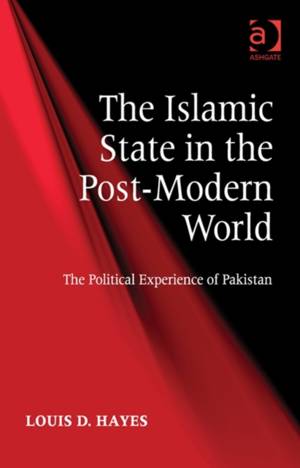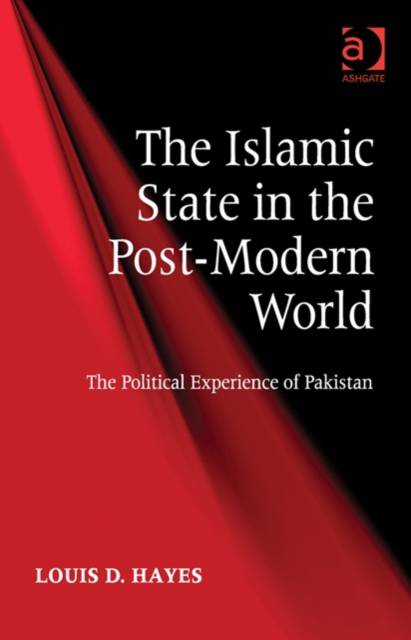
- Afhalen na 1 uur in een winkel met voorraad
- Gratis thuislevering in België vanaf € 30
- Ruim aanbod met 7 miljoen producten
- Afhalen na 1 uur in een winkel met voorraad
- Gratis thuislevering in België vanaf € 30
- Ruim aanbod met 7 miljoen producten
Zoeken
The Islamic State in the Post-Modern World
The Political Experience of Pakistan
Louis D Hayes
Hardcover | Engels
€ 195,95
+ 391 punten
Uitvoering
Omschrijving
The Islamic State in the Post-Modern World is a study of the political development of Pakistan. This study consists of three parts. The first addresses the concept of the 'state' as it has evolved historically. The approach is comparative and involves a brief review of Islamic political theory. The second part of this section is the modern state, i.e., the Westphalian model. The territorial state is still the standard although it has been evolving in new directions for some time. The second section focuses on the creation of Pakistan as an experiment in bridging the gulf between the demands of the modern state and the philosophical-spiritual attraction of the Islamic model. In addition to constitutional issues, the discussion also includes political forms, i.e., the machinery of daily government and the appropriateness of democratic methods, elections, legislative process, and political parties, to achieve Islamic ends. The third part considers international issues from the beginning of the twenty-first century especially the conflicts in Iraq and Afghanistan. Despite its 'partnership' role with the US in the war on terror, Pakistan has been consistently marginalized. Pakistan's problems are exacerbated by the conflict over Kashmir, a vestigial remnant of Pakistan's continuous, and largely unsuccessful, efforts at self-identification.
Specificaties
Betrokkenen
- Auteur(s):
- Uitgeverij:
Inhoud
- Aantal bladzijden:
- 170
- Taal:
- Engels
Eigenschappen
- Productcode (EAN):
- 9781472412621
- Verschijningsdatum:
- 22/05/2014
- Uitvoering:
- Hardcover
- Formaat:
- Genaaid
- Afmetingen:
- 156 mm x 233 mm
- Gewicht:
- 489 g

Alleen bij Standaard Boekhandel
+ 391 punten op je klantenkaart van Standaard Boekhandel
Beoordelingen
We publiceren alleen reviews die voldoen aan de voorwaarden voor reviews. Bekijk onze voorwaarden voor reviews.











